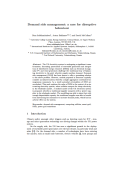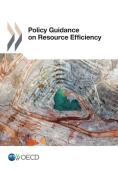The United Kingdom: Global hub, local dynamics looks at the steps that the UK has taken towards a sustainable financial system shaped by its role as a global financial centre and a distinctive dynamic between social entrepreneurs and civil society organisations, market innovation and policy frameworks. The City of London is not only home to some of the world’s largest financial markets, but also to a range of sustainable finance initiatives that are setting the agenda both domestically and internationally.
Following the financial crisis, there has been a shift in the way in which sustainability is being pursued, moving from institutional to a systemic approach. Looking across the system, five key avenues of change within the UK can be identified, all of which have direct or indirect implications for the rules that govern the financial system:

The 2015 EU Energy Union Package proposes integrating renewables into the market, just as the UK has moved away from Premium Feed-in Tariffs (FiTs) for renewable electricity supply (RES-E) to something closer to the standard FiT, which, when auctioned, demonstrated a 3% real fall in the weighted average cost of capital (WACC). The UK, which has experimented with nearly all forms of RES-E support, offers the evidence base for designing the Energy Union’s RES-E support. Innovation needs a further redesign to deliver adequate funding, best done through country contributions to an EU-wide innovation competition.

This report responds to the request by G7 Leaders at the Schloss Elmau Summit in June 2015, for the OECD to develop policy guidance on resource efficiency. Establishing a resource efficient economy is a major environmental, development and macroeconomic challenge today. Improving resource efficiency by putting in place policies that implement the principles of reduce, reuse, recycle (the 3Rs) is crucial to improving resource use, security and competitiveness while diminishing the associated environmental impacts.

The 2015 EU Energy Union Package proposes integrating renewables into the market, just as the UK has moved away from Premium Feed-in Tariffs (FiTs) for renewable electricity supply (RES-E) to something closer to the standard FiT, which, when auctioned, demonstrated a 3% real fall in the weighted average cost of capital (WACC). The UK, which has experimented with nearly all forms of RES-E support, offers the evidence base for designing the Energy Union’s RES-E support. Innovation needs a further redesign to deliver adequate funding, best done through country contributions to an EU-wide innovation competition.
